Date Updated: Nov 20, 2022
Jump to Section
- What is Compost Tea?
- How To Make Compost Tea
- How Compost Tea Benefits Your Plants
- Why Compost Teas are Better Than Regular Compost
- Fertilizing Your Garden
- Properly Storing Your Homemade Brew
- Frequently Asked Questions
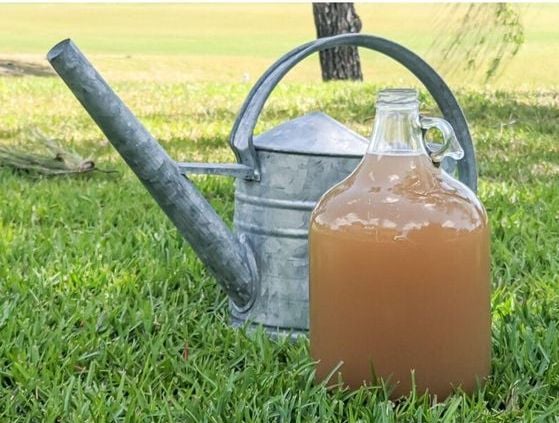
(Source: Pinterest)
What is Compost Tea?
Are you looking for a way to get ready for spring and improve on last year’s garden? Making compost tea at home is one of the most effective ways to accomplish this!
Compost tea is basically what you get when you brew finished compost. In the gardening community, it is referred to as a miracle elixir for speeding up the process of growing plants. That is due to the fact that it increases the population of the beneficial microorganisms in the soil. These microbes are ideal for healthy soil and plant growth.
If you need more information about composting in general, read our blog post titled “What is composting?” to know all the ins and outs of starting your own compost pile.
How To Make Compost Tea
If you are reading this blog post, you probably already have a compost pile or bin at home. This means you have the most important thing you need to make tea: finished compost. All you need to do is gather a few materials, and you will be ready to brew compost tea right at home.
When making/brewing compost tea, there are two main ways to do it. The aerated compost tea method (ACT) uses an electronic device to force oxygen into the brew. The non-aerated tea method only needs water, compost, time, and a bucket.
No matter which method you choose, our team at Uncle Jim’s Worm Farm can tell you what materials you will need and how to make compost tea.
Unaerated Method
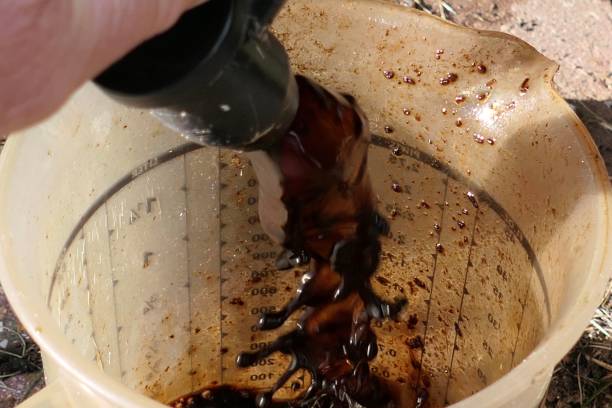
Materials you need
- Finished compost
- Container (usually a five-gallon bucket)
- Non-chlorinated water
- Strainer
Brewing the tea
This method is the simpler of the two since you do not need any machinery or tool to force oxygen into the mix. Your DIY compost tea brewer will just consist of materials you already have at home.
Step 1: Gather all your materials for easy access.
Step 2: Put your desired amount of compost into the empty bucket.
Step 3: Place the untreated water and compost in the bucket using at least a ratio of 1:4. Meaning for every cup of compost, you put in 4 cups of water.
Tap water should NOT be used since this contains chlorine. Rain water is preferable.
Step 4: Mix the solution vigorously until the compost and the water are thoroughly combined.
Step 5: Set aside the mixture somewhere where it will not be in direct sunlight.
Heating up the tea could lead to the growth of harmful bacteria.
Step 6: Wait for it to properly brew. If the temperature is above 60°F, brew for 12-36 hours. If it is below 60°F, leave it for at least 72 hours.
This is because the rate at which the good microbes grow could be affected by the temperature.
Step 7: Stir the mixture once a day so that the compost will not simply settle at the bottom of the bucket.
Step 8: After the needed hours of brewing, grab your strainer and pour the mixture through it into another container. After that, you should have your finished compost tea.
Tip: The solid material left in the strainer can be used as mulch around your plants. This stops weeds from growing and helps your outdoor plants retain more water. Uncle Jim is a firm believer in letting nothing go to waste.
Aerated Method
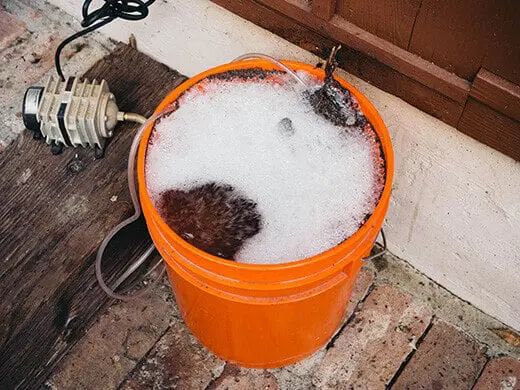
(Source: Pinterest)
This approach is very similar to the method above, just requiring a few more materials. Some people like this method because it lets more oxygen into the tea, which enables more of the good microbes to grow.
Materials you need
- Finished compost
- Container (usually a five-gallon bucket)
- Burlap bag (to separate the tea from solid organic matter)
- Non-chlorinated water
- Strainer
- Aquarium air pump
Brewing the tea
Step 1: Gather all your materials for easy access.
Step 2: Add untreated water to the bucket and use the air pump to start aerating it.
Step 3: With the same 1:4 ratio, put the finished compost into the burlap bag and dunk it into the bucket. It is similar to how you would place a tea bag into your mug.
Step 4: With the air pump still going, gently massage the contents of the bag to break up any clumping.
Step 5: Set aside the mixture somewhere where it will not get direct sunlight.
Step 6: Let it steep and aerate for around 2 days. There is no need to stir this since the air pump will do a good job of making sure there is always movement in the bucket.
Unlike the other method, this does not depend much on the temperature. This is because the air pump creates the perfect environment for the microorganisms to grow.
Step 7: Turn off the air pump and strain the liquid to make sure big chunks of compost do not escape the burlap bag.
And there you have it! Whatever method you use, you will end up with organic compost fertilizer. This will ensure you have healthy plants and that your soil health is the best it has ever been.
How Compost Tea Benefits Your Plants
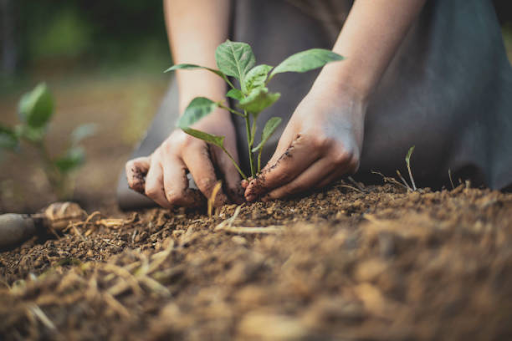
Compost tea brings with it a whole host of benefits for your home garden or plants. Here is a short summary of those benefits:
- Helps suppress diseases and aids in faster plant root growth;
- Helps with water retention in the soil;
- Increases the speed at which the plant breaks down toxins from garden chemicals;
- Increases seed germination leading to fruit/flower production;
- Supports sustainable agriculture because it is an all organic fertilizer.
Why Compost Teas are Better Than Regular Compost
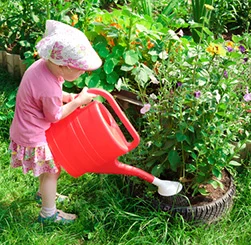
Composting in a bucket means you already have a lot of solid compost that is ready for use. But there is no denying that brewed liquid is more useful in several aspects. What makes it better than regular compost? To find out why, go through the list below:
- If you take the extra time to brew and filter your compost tea, you will get better results because it will be more easily absorbed by the plants and soil.
- When compared to professionally produced tea, making homemade tea from compost is more natural.
- Compost tea can also supply additional nutrients to your plants through a soil drench or a foliar application.
Compost tea concentrates bacteria at a higher level than regular compost so you will see faster results.
Fertilizing Your Garden
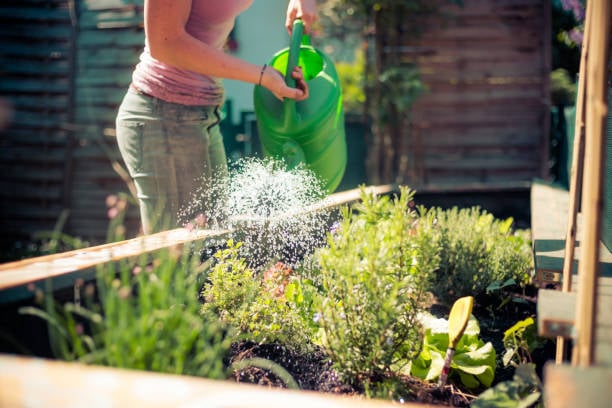
You can apply compost tea through two methods listed below:
Soil Application
When you apply compost tea to your soil, you are specifically targeting the plant roots. For household gardening, the most popular tool is a standard watering can. To guarantee that the finished tea reaches the root zone, dilute it with a little untreated water.
Foliar Application
The second method involves utilizing a spray bottle or foliar spray to deliver fertilizer directly to the plant leaves rather than the soil. This allows the plant to absorb more water and nutrients while also providing UV protection.
Properly Storing Your Homemade Brew
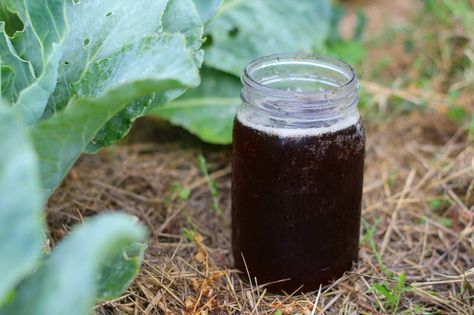
After you apply the compost tea to all of your plants, you might find yourself with some extra left in your watering can or spray bottle. Do not worry, it does not have to go to waste right away. Freshly brewed compost tea can be stored for up to six days in a sealed and lightproof container.
Frequently Asked Questions
Where can I buy compost tea?
You can buy compost tea in powdered form from a bunch of online stores. Some worm farms probably sell any excess that they make; but we suggest that you make your own. Starting your own little worm compost pile and reaping the benefits of compost, both liquid and solid, is a far better option. If you are looking for supplies, Uncle Jim has got you covered. You can buy red worms as well as composting bins here.
How long does it take to brew?
Either kind of tea listed above can be made in about 24–36 hours. If you leave it out for longer than that, harmful bacteria like E. coli and salmonella could start to grow in it. All of the oxygen will be used up by the microbes, creating anaerobic conditions that make it more likely that bad bacteria and mold will grow.
How long can you leave compost tea?
Compost tea can be kept for up to four to six days in a container that is airtight and does not let light in. If you want to keep it for a long time, you will need to aerate it regularly. Most people will use an aquarium pump or a bubbler stone.
Why can’t I use unfinished compost?
Pathogens in unfinished or immature compost can be harmful to plants. It will also compete with your plants’ food source because it still requires additional nutrients to transform to completed compost.
We hope that this blog post has answered all of your questions about compost tea brewing and application. We also have other blog posts and guides that cover a wide range of topics, from learning how to build your own compost bin all the way to starting a vermicomposting business.
If you have any more questions or are looking for more worm-farming supplies, Uncle Jim is the one to call! Don’t hesitate to reach out.


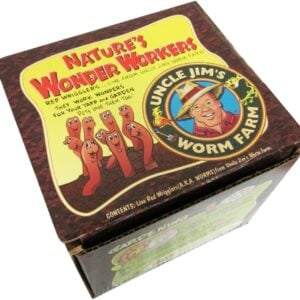
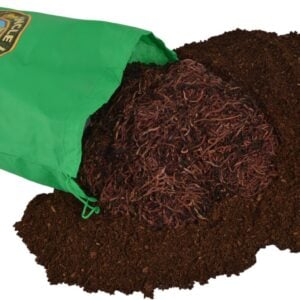
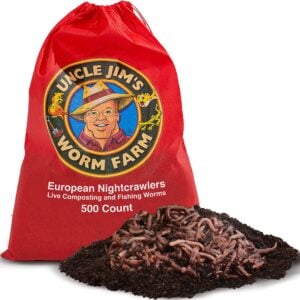
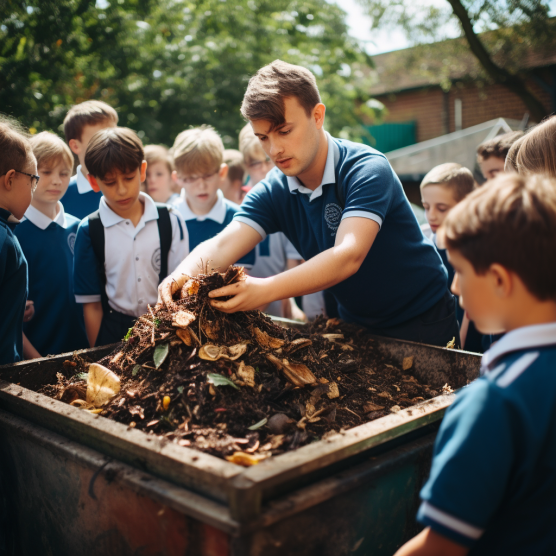
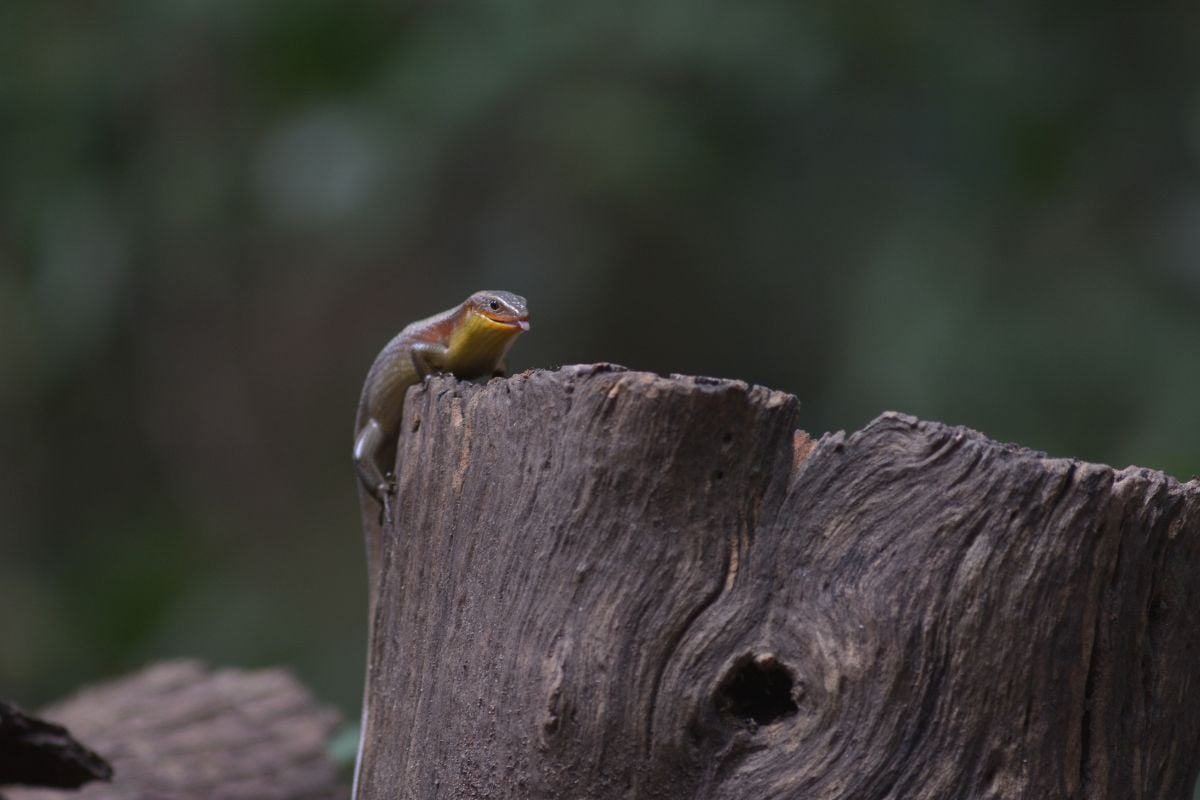
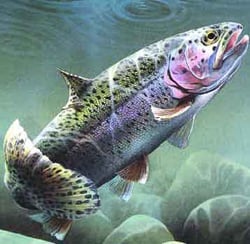

4 thoughts on “How To Brew Compost Tea”
If we want to store extra worm castings we’ve purchased, what would you recommend? I’ve read to keep them moist and sealed with holes for aeration AND I’ve read to keep them seal and dry because re-wetting them with activate the microbes that have gone dormant (and keeping them wet for will cause the microbes to spend themselves).
Hello Lisa;
To store castings, we recommend that you keep them in a 5 gallon bucket with a loos fitting lid, to allow oxygen into the bucket. Put them in a cool, dry place and do not let them get overheated or too dry. Also, to not wet them unless you must add some moisture. just a little. They normally will last up to 4 months like that, or sometimes longer.
Have a great day!
Uncle Jim’s
Can you use the bag the worms come in for compost teas?
Will compost tea keep bugs from eating plants